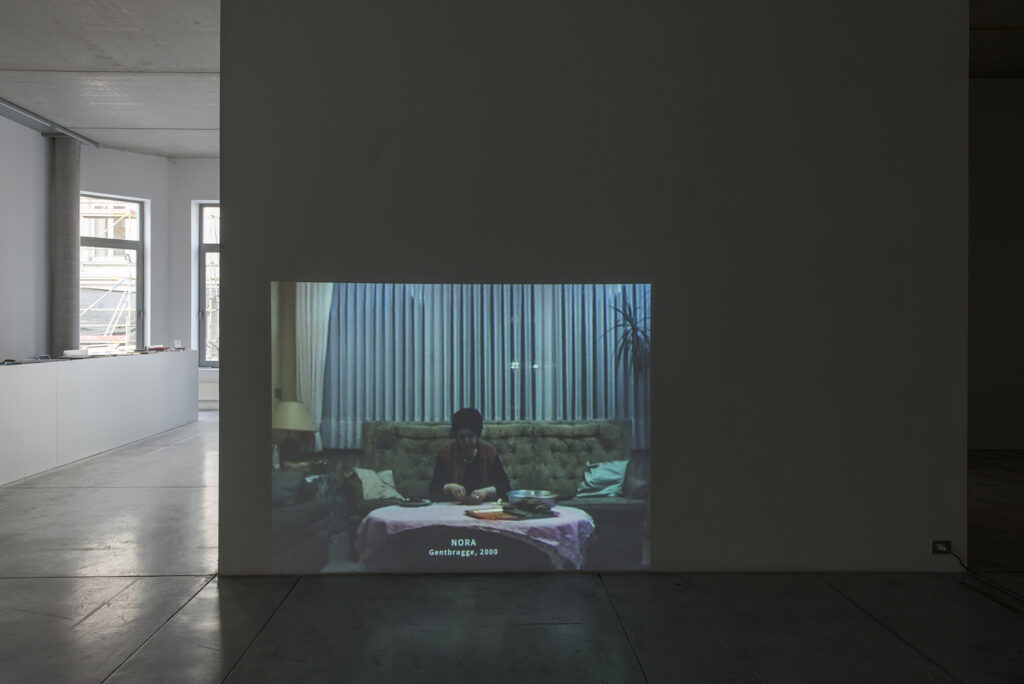pieter van bogaert
pieter@amarona.be

«NON. J’AI CHANGÉ D’AVIS. J’AI ENVIE D’ALLER À HAMBOURG COMME DANS LA CHANSON D’ÉDITH PIAF.»
Mekhitar Garabedian
Voor Albert Baronian, 2019
One of us
She recounts that he donated part of his collection to the Huis van Alijn, the museum of everyday life in Ghent. That some works were added to the collection after his exhibition in SMAK, Ghent’s museum for contemporary art. That he was completely integrated in his own city, training a new generation of artists at the Academy of Fine Arts (Academie voor Schoone Kunsten). That he was a researcher at this same academy. Post-doctoral. That she could be proud of what he had achieved.
She recounts how proud she was of his book. All the words. All the footnotes. All the ideas. About looking back into the past. About the importance of not understanding an artwork. Of labelling art as “unexpressing the expressible”, in the words of Anthony Huberman (and actually “inexprimer l’exprimable”, because the original quote comes from Roland Barthes of course).
She recounts how he grew up with many languages, from a very young age. These were the languages of his family: Dutch, French, English, Arabic, and Armenian. That’s where all the words came from. All the conceptions and misconceptions. All the images as unexpressed expressions. It begins by speaking someone else’s language, and ends by saying someone else’s words. Borrowed identity, he called it.
She saw it as normal. The whole world came to their house. All of them were family. On one occasion they all went to Beirut to photograph her memories. But Hamburg, “comme dans la chanson d’Edith Piaf”? She doesn’t remember that. That is just an image.
And yet there still are things that she does not understand. Why he always returned to her for his work. Perhaps his studio was too close. Perhaps that was not so healthy. Why did he not go into the world, like all great artists? What is so special about taking photos of the kitchen table, or of the coffee table, or of the sink, for god’s sake! Where is the unexpressed in these images?
She knows why—he explained it so often. It is about the unusual in the everyday. The unknown. What you keep following. He explained with the help of French philosophy— Derrida, who moved from ontology (the study of being) to hauntology (from ‘haunt’,
about what does not leave you in peace, like a ghost). She knows it well by now. The small actions that are part of her body, from a family she never knew. The memories that became hers. ‘Postmemory’, as it is known in philosophy.
She wants to understand it all—and she does. But sometimes she wishes that he had done what every other young man does. Fiddling around in garages. Hanging out on the streets. He did do that with his band, named after an American skater: Steamer and something else. There are artists that build a career on this, on skating. Showing the extraordinary in the everyday. But what is so special about the sink?
She is happy to take things as they are. Completely normally. He is one of us, she says.